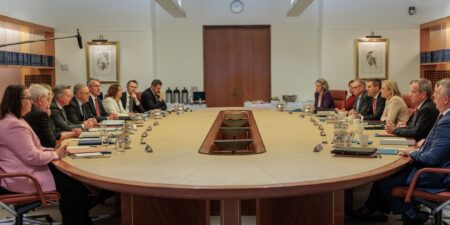A movement requiring technology companies to pay for news content hosted on their platforms has spread from Australia to other markets. The response of technology giants threatens to fracture the internet.
Earlier this month, Meta blocked news access on its social networking services in Canada. The move came in response to the Online News Act’s passage in June. Facebook made a similar call in Australia in 2021: for six days, users could not post links to news on Facebook or Instagram. The result was chaotic: government and emergency services reported being blocked from sharing links. Australia’s heavily concentrated media industry initiated calls for the country’s News Media Bargaining Code. It advocated that the government pass a law that would restrict platforms from displaying links to news stories. Platforms would be forced into a binding arbitration with publishers, which could negotiate with Facebook and Google to have their content displayed on the platforms.
Echoes of these initiatives can be seen across Asia, with Indonesia leading the charge. Indonesia’s draft of the Presidential Regulation of Digital Platform Obligation to Support Quality Journalism (Perpres) is modeled after the Australian News Media Bargaining Code. The powerful Indonesia Press Council is spearheading the regulation. Although deliberations of the code have been ongoing since 2021, BGA expects that the government will look to pass the draft Perpres by the end of the year. Perpres is unlike the Australian code, which has not designated any companies to pay for news content. The Indonesian government appears committed to pass the regulation in a workable form; it is coordinating with technology companies to revise the regulation accordingly.
In Australia, Facebook’s sudden removal of news content sent Australian regulators back to the negotiating table. They agreed that Meta and Google would need to make voluntary payments to news publishers to avoid the binding arbitration. It is estimated that Meta and Google paid $140 million to Australian publishers the year after the news media code was established. Australia’s law, drafted with Meta and Google in mind, unlike Indonesia’s. The latest draft is very concerning for digital platforms operating in Indonesia because there is no designation mechanism. After the regulation’s passage, all digital platforms that host news content will automatically fall within its scope.
In Malaysia, the Communications and Digital Ministry is considering a mechanism that would compel technology giants to pay local media houses for news content. Discussion of the News Content Bill is still conceptual and limited to senior bureaucrats, upper management of the Malaysian Communications and Multimedia Commission and the minister’s officials. Momentum continues to build, with increasing calls for a mechanism requiring technology companies to pay for local news content. Communications and Digital Minister Fahmi Fadzil said he may introduce a regulatory framework to help facilitate negotiations between the Malaysian Newspaper Publishers Association and technology companies. Notably, the government has shown a willingness to discuss this issue with businesses because it hopes to avoid being isolated, as was the case in Canada.
Taiwan’s Legislative Yuan is considering four versions of the media bargaining code that legislators have initiated. They are all based on the premise that digital platforms use news content to generate advertising revenue, causing substantial declines in traditional media’s profits from the same source. The Digital Affairs Ministry is leading the effort in Taiwan and analyzing similar legislation in other countries along with the bills that legislators on the Education and Culture Committee have proposed. It is unclear at this stage whether the government will pursue a model like Australia’s or amend its Copyright Act to mimic the European Union’s copyright law, which requires payments from digital platforms when using content that the news media has produced.
New Zealand’s Broadcasting Minister Willie Jackson has quietly tabled a similar bill, aiming to shore up media company revenue. The bill was introduced to Parliament last week and tasks the Broadcasting Standards Authority with creating a bargaining code for digital platforms and news companies. Both sides will be bound to follow the code and bargain in good faith. Media companies will be able to bargain collectively and if agreement cannot be reached.
In the United States, the Senate Judiciary Committee has approved legislation similar to Canada’s. South Africa and Brazil are also considering regulations. Laws requiring tech companies to pay for news content on their platforms would put a price on free access to the internet. Such legislation could upend the concept of an open internet, in which users can search for and access material without restrictions. Legislators are watching this matter closely as they seek to bolster traditional media industries.
We will continue to keep you updated on platform technology developments as they occur. If you have any questions or comments, please contact BGA Senior Director Apoorva Kolluru at akolluru@bowergroupasia.com.
Best regards, BGA Platform Technology Team

Senior Director, Client Services
Apoorva leads BGA teams to support clients in the platform technology sector, ensuring companies receive exceptional and consistent support around the globe. Apoorva is an experienced strategist with a track record of helping multinational companies and think tanks achieve success in the Indo-Pacific. Through her roles at BGA, Apoorva has led analysis and engagement in both market-specific and sector-specific roles, addressing the needs of companies on both a local and a global scale. She has supported clients in sectors including technology, financial services, health care and consumer products. Prior to joining BGA, Apoorva worked as a communications officer at the ...
Read More


























